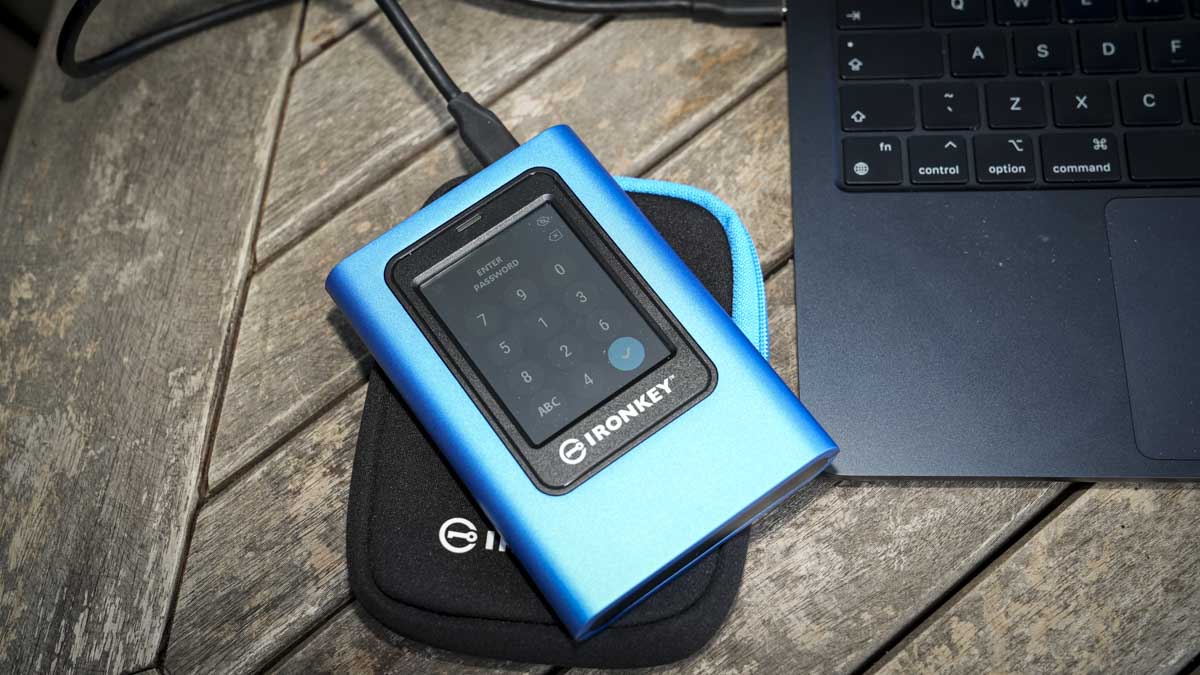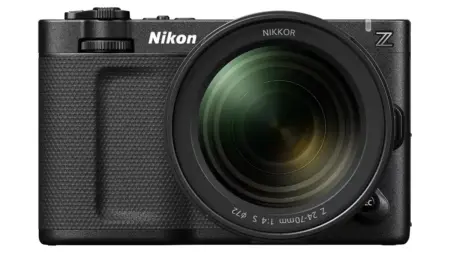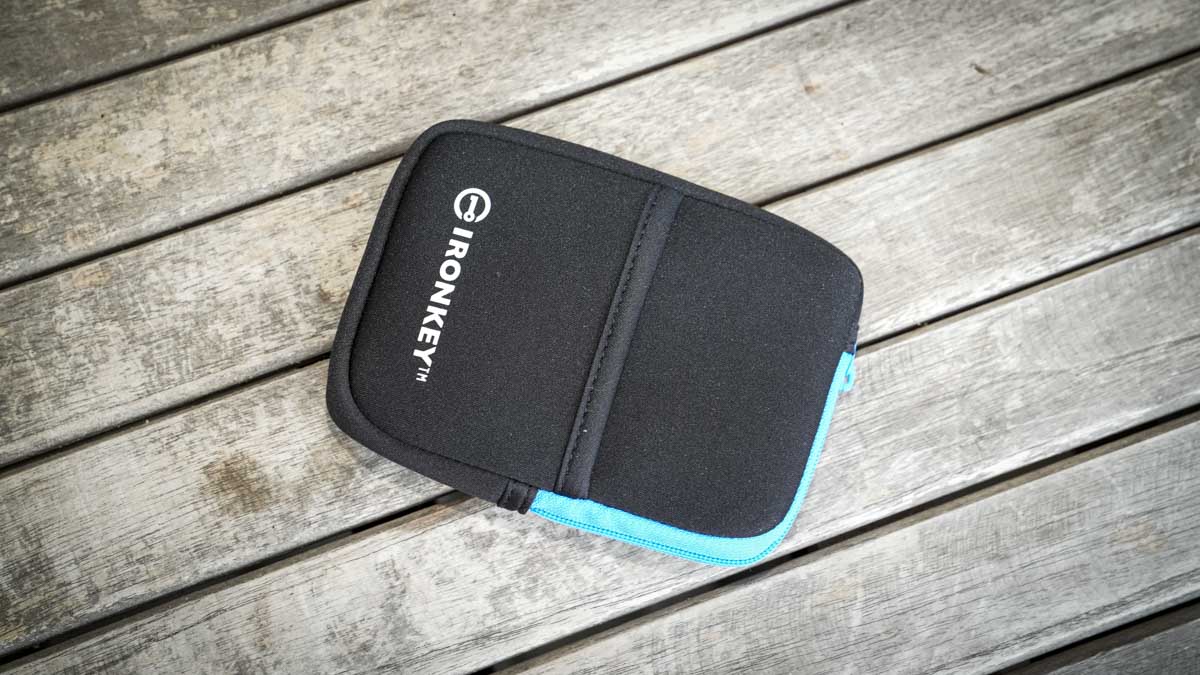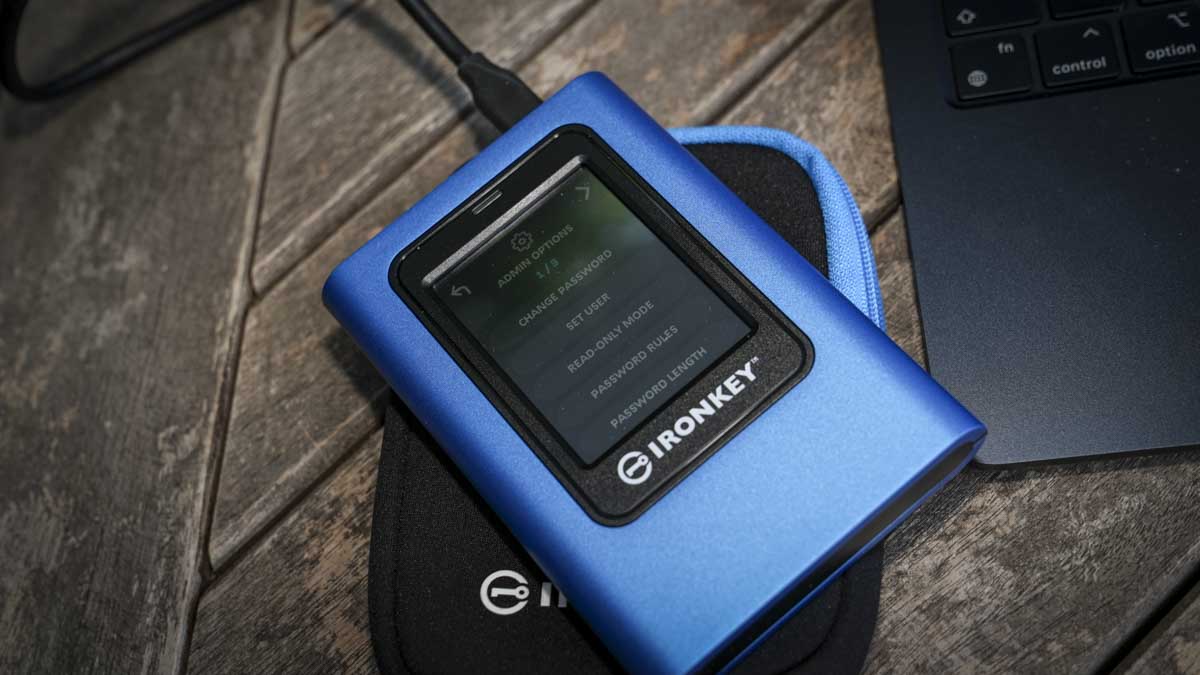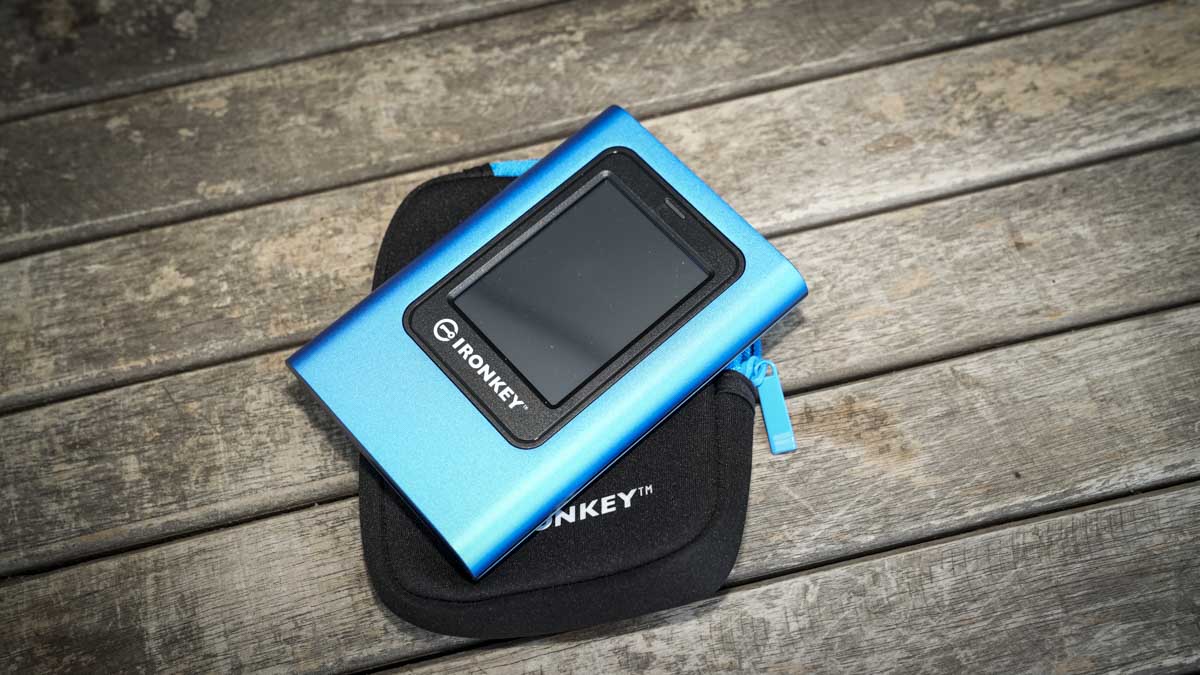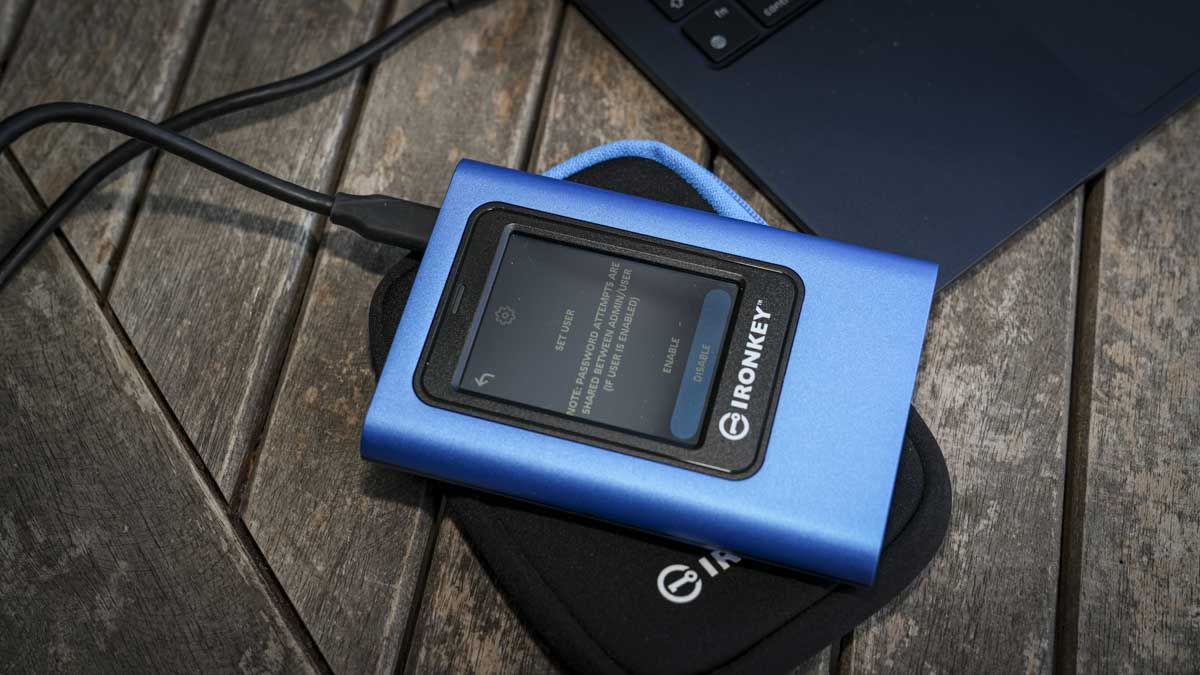The Kingston IronKey Vault Privacy AES is a hardware-encrypted external SSD that utilises the USB 3.2 Gen 1 interface to connect to your computer for data transfer, and also features a colour touchscreen for authentication through a number and alphabetical keypad.
Unlike software encryption for your portable SSD, hardware encryption is far more secure and places a complete block on any computer accessing the data until the correct password is entered. Once you connect the drive to your computer, only power is delivered to the device, and only after the password has been entered is the data section of the drive unlocked, so you can access the contents.
What’s more, even if you try to access the drive internally, there is enough security surrounding the SSD to halt any brute force extraction attempts.
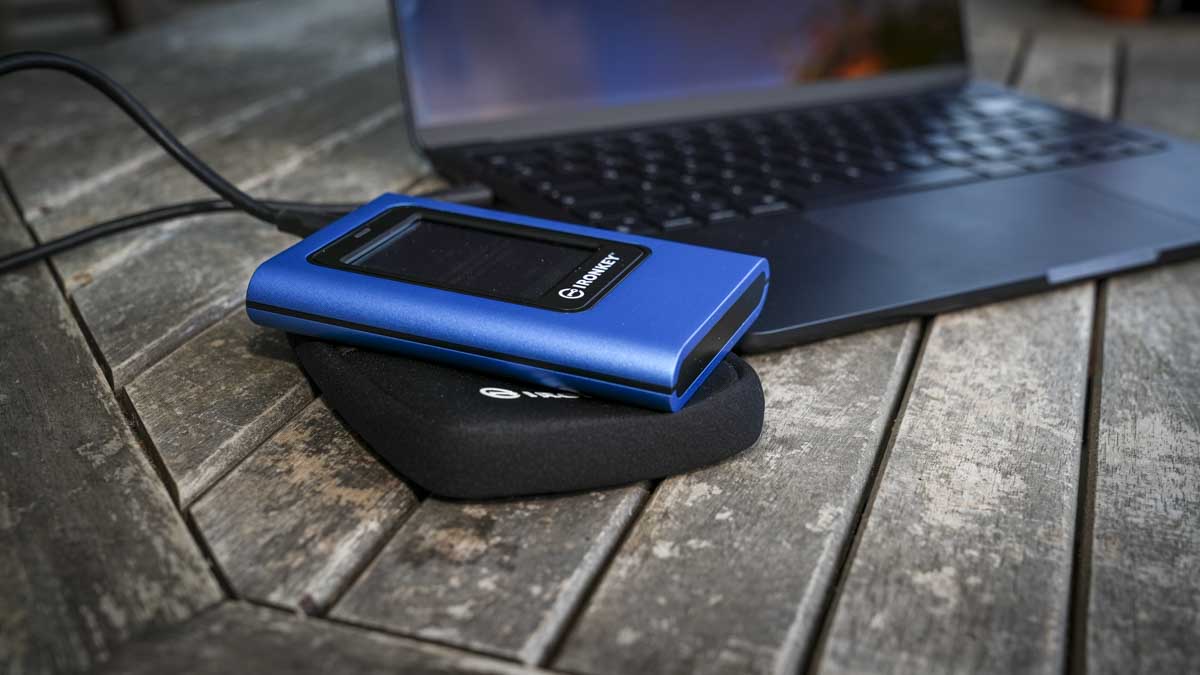
The drive also features its own OS-independent, with cross-platform compatible system, which means it works equally well with iOS, Windows, Android and macOS. All you need to do is plug it in, enter your password, and it will appear like any other hard drive on your computer.
Kingston has essentially designed this drive for SMBs, content creators, and any professional using valuable data, which makes it ideal if you have client shots you need to transfer securely. The fact that the drive is completely secure means you can pop it in the post knowing that the contents will be safe, while the build quality also ensures durability.
The drive is available in several different capacities, ranging from 480 GB, 960 GB, 1.92 TB, 3.84 TB, and 7.68 TB, meaning it can handle everything from administrative documents to large image and video files that would otherwise take ages to transfer using online services.

